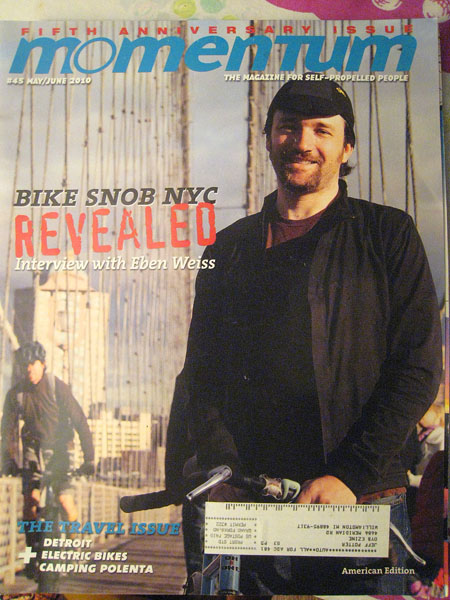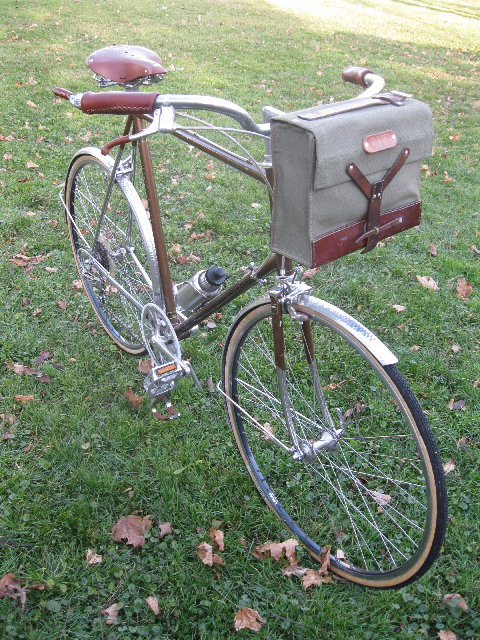How a Flatlands Flunky Dared to do the Iditabike Alaskan Winter Marathon
or: Garbage Bags Might or Might Not Save You from Open Water
by J.P. Partland
Just as I tell myself to cross the street or eat, I told myself to race in the Iditasport.
What’s the big deal? It’s only a 200-mile bicycle race in Alaska in February.
No big deal, indeed. I cursed myself and my moronic plans all the way to the airport.
The mandatory racers’ meeting, held two days before the race, was no confidence builder. Upon signing in, the organizers handed each racer a bumper sticker that read, “Cowards Won’t Show and The Weak Will Die.” They arranged for a speaker to tell us about the dangers of not drinking and eating enough: among them bonking (running out of calories to burn), which could lead to hypothermia, which could lead to…death.
One former participant, a writer, told me that a man who climbed Mount McKinley alone tried the race once. The climber dropped out, claiming the race was too difficult.
Then again, around fifty people enter the race each year, and no one has died yet. The organizers told me it was do-able and the unofficial race mechanic told me that the location for the race, “isn’t that cold.”
He meant by Alaska standards. It isn’t as cold as Fairbanks or Nome, but it can get as low as -60F. And temperatures in the -20sF aren’t uncommon.
When race day dawned, l got to the starting line and busied myself with getting the gear on the bike, putting on the right clothes, and firing up my stove and melting snow for the promoter (a mandatory test because one had to carry, among other survival items, a stove and pot). He handed me two garbage bags and told me to put them over my feet if I had to cross open water. It was 12 F.
The great thing about starting any event or test is that the preparation is over. The past is left behind and you make do. A nice thing when you race in the cold is that your body, which was shivering at the start because you were underdressed for standing around, isn’t shivering anymore because your body has become a raging furnace.
I took the lead from the start of the ice run at Big Lake. I lead onto the snow, where the racers with lighter rigs passed me. Those racers rode out of sight as I distanced myself from the racers behind. I was left on my own.
Watching nine people pass me and fade off in the distance was frustrating. I knew I was as strong as those guys (and a couple of gals). I had only realized my disadvantage at the starting line: the people ahead of me were carrying some twenty pounds less gear than I was. I probably could survive if the weather suddenly went bad; they probably couldn’t. My sleeping bag (rated to -40 F) weighed over six pounds, which was already more weight than most if not all of the cyclists ahead of me were carrying. And that was just the start of my provisions.
Well, I settled in to enjoy the ride. The sun came out, Mount Susitna was in the distance, and I was pleasantly alone.
There is no real need for any sort of competition here (especially for someone from the other side of the continent), so deciding to take on a race of this sort is a jump into the absurd. Sir George Mallory said of his desire to climb Mount Everest, “Because it’s there.” He died on that mountain. The Sherpas, residents of the valleys in the shadow of Everest, never had any desire to do any such thing. They were obviously more balanced. They lived in those valleys for hundreds of years, yet they never aspired to climb Everest.
A chief component of my desire to do something so outlandish was boredom. I was due for a challenge.
So many aspects of our existence are assured that we’re almost totally removed from our primal concerns: survival and procreation. It is almost as if we are not alive. The craving for adventure rises from the same place in our brain where we crave sports, sex, and working with our hands. No matter how cerebral a person is, each and every one takes some pleasure in the physical world. As Woody Allen pointed out, the brain aspires to the higher things, but the body has all the fun.
I started to wonder about death, or at least serious danger, on my seven-hour walk from Rabbit Lake to the halfway point. After six and a half hours of daytime racing, I had reached the 70-mile checkpoint at Rabbit Lake. The lake couldn’t be seen because one was over it; Rabbit Lake was covered by ice and many feet ot snow. I had walked the mile previous to this checkpoint because the snow had deteriorated to loose powder, “snow-sugar,” unrideable conditions. Fifty-five pounds of bike, even with the special extra-wide tires and rims I was riding, was too much for this snow.
The people at the Rabbit Lake checkpoint looked like a gang in the midst of a tailgate party without a tailgate. They had arrived by plane; no roads out here. One person told me that as the temperature dropped over the course of the evening, the trail would harden up and become more rideable.
She was wrong. Though the temperature dropped through the teens (F), the course remained snow-sugar, broken apart by the cyclists who passed ahead of me. After about four hours of walking, I started to worry. There were no lights, no trail markers, no signs of human life; nothing. My water was running low, I was finishing my food supplies. What if I ran out? I was told that I would know I was approaching Skwentna, the halfway point, because I would see the lights from the nearby airfield. I saw nothing; and stumbled into Skwentna at around 12:30 am.
I forgot about my fears when I stepped inside the cabin at the checkpoint. It was warm and there was plenty of food to eat. I also forgot about the promise I made to my farnily and friends. I promised them and myself that I wasn’t out to win, or even finish, at all costs. “I’m not a fool,” I told them, “if things get really dangerous I’ll either wait it out or drop out, but I won’t continue if it’s really bad. I won’t push myself over the edge.” But, all I thought about was heading south along the Skwentna river. I was planning to ride through the night.
Part of my excitement was due to my desire to exceed my expectations, part of it was due to the promise of the Skwentna. “The Skwentna is fast riding,” the folks at the checkpoint told me. At first it was fast, but navigating a frozen river at night is difficult. The river curves and the trail down the river, marked by sticks placed in the snow a few hundred yards apart, meanders across the river seeking the thickest ice. At night, the one-inch square pieces of reflective tape are all one can see of the stick, if one can spot it at all. My mind was starting to go to sleep, my body was shutting down. I had pushed myself too far.
I was reduced to stumbling down the river with my bike as my balance. The last thing I wanted to do was stop and sleep, even though I had the gear to do it. My delirium was jolted by a massive silhouette just 50 feet away. A bull moose had been studying my progress. I was now awake, but very frightened. Fear pumped adrenaline through my body and after I gingerly distanced myself from the moose, I was able to ride again. The threat had spurred my mind and body to go farther.
I was in trouble, but there was nothing I could do. This is both the beauty and the danger of such an episode. I knew the adrenaline would run out, but I was hoping the juice would take me to the next checkpoint.
It didn’t. I’ll confess that I lost all rationality. When I finally arrived at the next checkpoint, I seriously considered going out for more, even though the woman there told me they were about to send a party to look for me. I had taken almost four hours to cover twenty miles. She was trying to tell me that I had pushed myself too far. Somehow, reason won out, and I decided to sleep. She probably would have forced me to stay if I decided otherwise.
I wanted to race in Iditasport and I did it. I woke from a cold sleep slightly before sunrise and continued heading south on the river. I rolled into the lodge at Big Lake 30 hours and 52 minutes after I left it. Muscle soreness and danger were forgotten as I was overjoyed to get out of the cold and into dry clothes. The reasons for racing Iditasport faded in the glow of finishing. And now, looking back, I have some trouble believing I did it.
Before the race even started, Simon, a bicycle mechanic from Fairbanks, asked me, “Are you going to do it again? Because you should. It’s a great race, y’know.”
I didn’t know then, but I know now.
Maybe I will.



